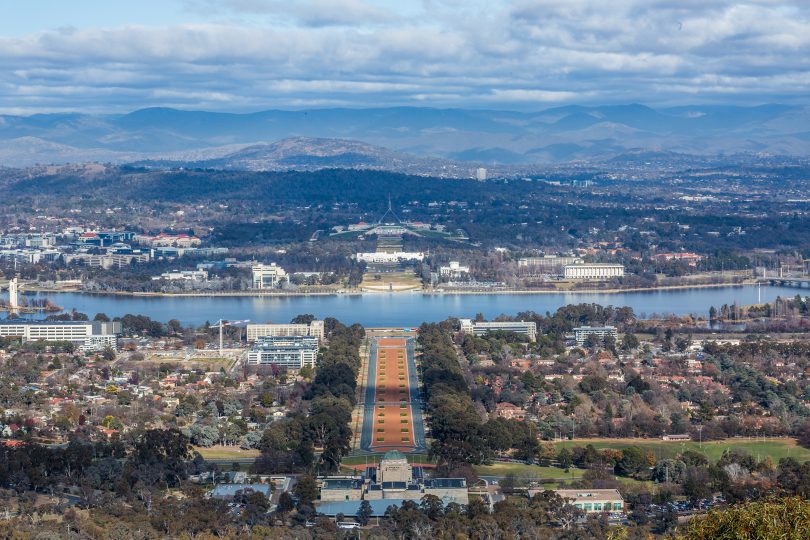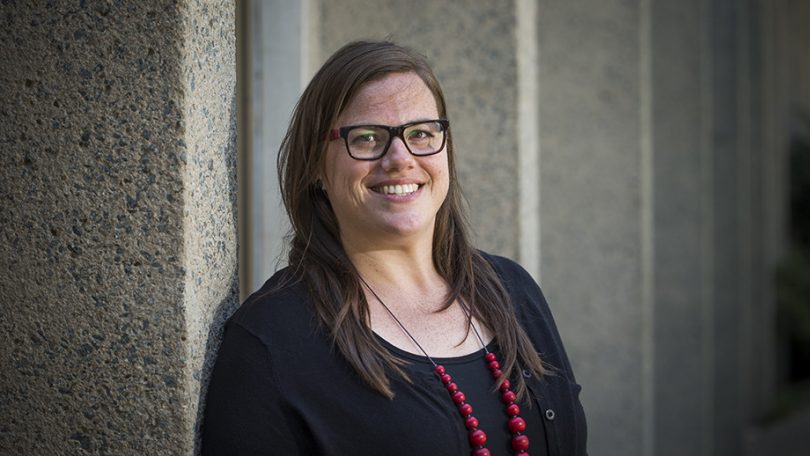
Population growth in Canberra remains strong despite a low fertility rate. Photo: Jack Mohr.
Canberrans are having fewer babies, and the territory is losing residents to other states, but our population has steadily grown to 472,803, due mostly to overseas migration.
The Australian Bureau of Statistics’ (ABS) recent release of its population data for the March quarter 2024 also shows Australia’s overall population has exceeded 27 million for the first time, a rise of 8 per cent since 2017.
The number of people living in the ACT has increased by 10 per cent in that time – a faster rise than any other jurisdiction except Queensland and Western Australia.
The ACT fertility rate, however, has steadily declined over the past six years and remains the lowest in Australia. Canberran adult women have 1.33 children on average.
More people are leaving the capital to head to other states and territories than moving here from the rest of the country – our net interstate migration has been minus 3437 since the start of 2022.
In that same period, net overseas migration has boosted our population by more than 17,000.
“Much like the rest of the nation, the ACT has a number of demographic challenges and opportunities,” ANU demographer Dr Liz Allen said.
“We have a declining fertility rate … there are a number of factors that are making it difficult to raise children. Housing affordability, job security, cost of living, gender inequality and climate change come together and create some insurmountable barriers to having a family.”

Dr Liz Allen says we are facing a human catastrophe because our society doesn’t support parents’ work-life juggle. Photo: ANU.
Dr Allen says this has grave consequences for both the economy and individuals.
“A low fertility means we have an insufficient workforce to support our economy. We are not replacing our workers, and that puts pressure on the government’s bottom line.
“I also see a human catastrophe … there are families that will never be had because we as a society don’t support parents to make that work-life juggle in a climate-boiling situation.”
Dr Allen said that while migration could address our workforce shortages, that issue was a two-edged sword as high numbers of arrivals from overseas also attracted criticism.
Dr Kevin You, of the think tank the Institute of Public Affairs, said of the ABS population data release: “The current unplanned, record migration intake is placing immense pressure on housing and infrastructure, has not solved our worker shortage crisis, and is leaving Australians worse off.
“With the number of new dwelling approvals dramatically lower than the number of new arrivals, the great Australian dream of home ownership is being destroyed for the next generation of Australians and new arrivals alike.”
Dr Allen rejects the view that high migration levels are to blame for the housing crisis.
“We saw during COVID, even with a net deficit of overseas migration of minus 80,000 people, we still had a housing crisis … undoubtedly we have a housing catastrophe on our hands, but this is not the fault of immigration, it’s a home-grown disaster,” she said.
“We can trace declining home ownership since the post-World War II housing build … we have not had any government intervention that has earnestly tried to make improvements in this area.
“What we’re seeing is the current government, previous government and governments since [John] Howard have done a very good job at problematising population … politicians seek to blame what is easy; blaming an entire population that may not have voting rights and blaming somebody other than themselves is politically strategic.”
A complete list of data sets on Australia’s and the ACT’s population trends can be found on the ABS website.
Original Article published by Oliver Jacques on Riotact.



